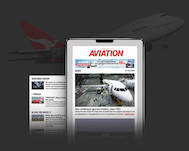Wiseway has announced air freight dry cargo revenue was down 17 per cent to $36.6 million for the six months to the end of 2019.
The Australian company blamed exporters’ preference for sea transport and slowing economic growth for the disappointing results.
However, overall gross profits across the business were up 12 per cent to $11.3 million, with perishables exports, imports and sea freight exports performing well.
The figures don’t take into account the impact of the coronavirus, however, the company played down its potential impact, claiming it has managed to leverage alternative routes.
Wiseway chief executive Roger Tong said, “Earnings for the half-year were impacted by reduced air freight volumes due to the volatile macroeconomic environment and slowing economic growth.
“As a result, air freight dry cargo, was down 17 per cent, to $36.6 million for the half. However, pleasingly we have seen growth from the new business divisions more than double.
“Due to the business expansion investment in premises and people, operating costs increased. As stated in January, we have now completed all expansion projects envisioned pre-IPO.”
Early this week, Wiseway Logistics made headlines after it carried out a humanitarian aid flight to the coronavirus-stricken Chinese city of Wuhan.
The city at the epicentre of the COVID-19 outbreak – which is currently under lockdown, and is reporting shortages of food and other essential goods – has received 100 tonnes of donated cargo from Australia.
“The donations include much-needed protective clothing for healthcare professionals, including surgical and N95 masks, along with medical equipment, decontamination products and medications,” managing director Florence Lee said.
“In the interest of safety, the pilots conducting the flight will not leave the aircraft, and the flight will carry no passengers. Freight will be unloaded in Wuhan by personnel from humanitarian groups who will meet the flight at the airport.”
Though Wiseway planned and bore the cost of carrying out the flight operation in full, corporate donors including A2 Milk, National Australia Bank and Qantas contributed significantly to donations received.
The cargo plane used was also donated by China Southern Airlines.
















